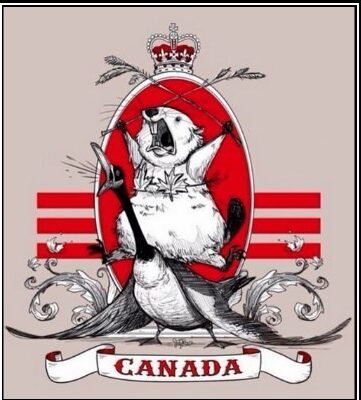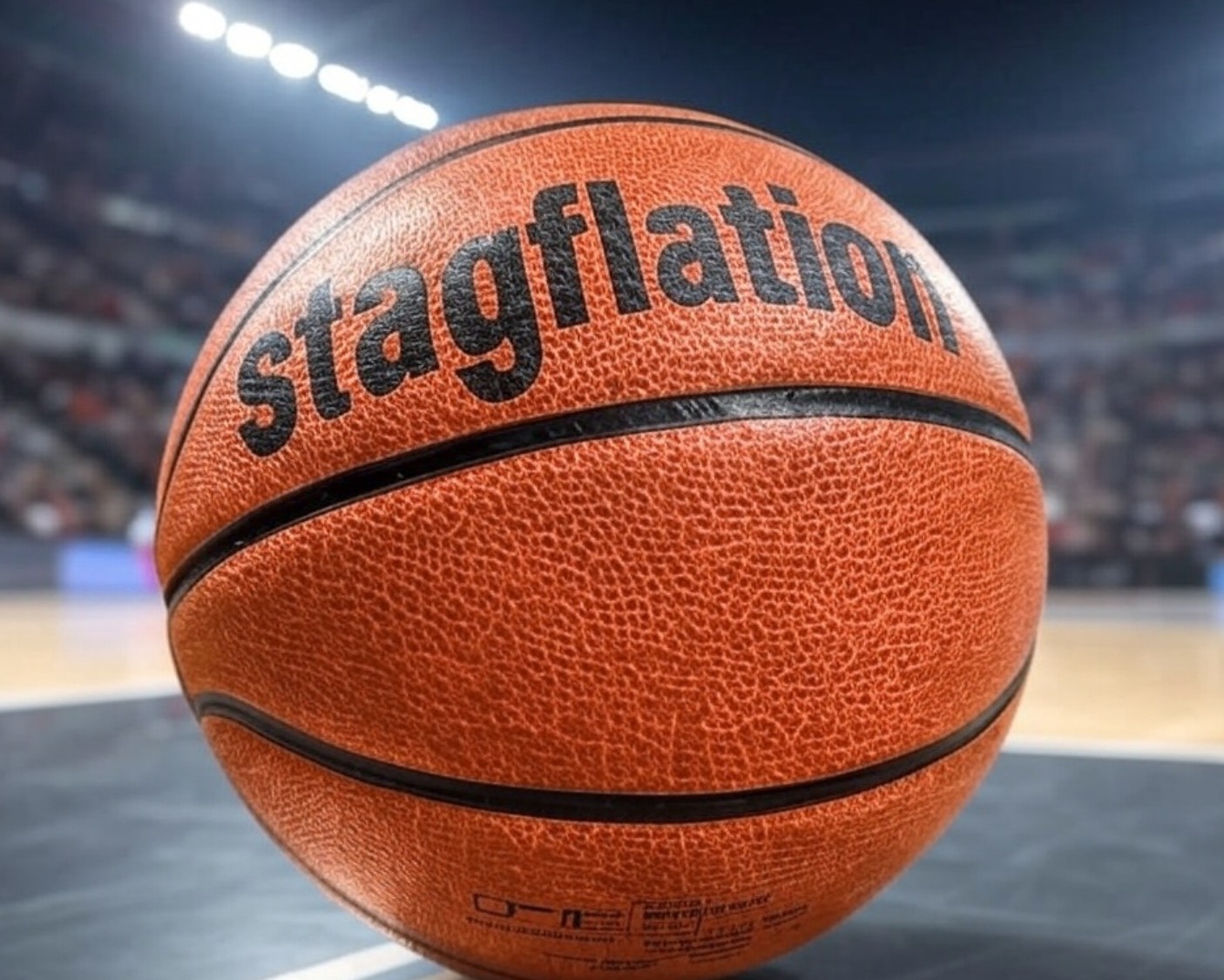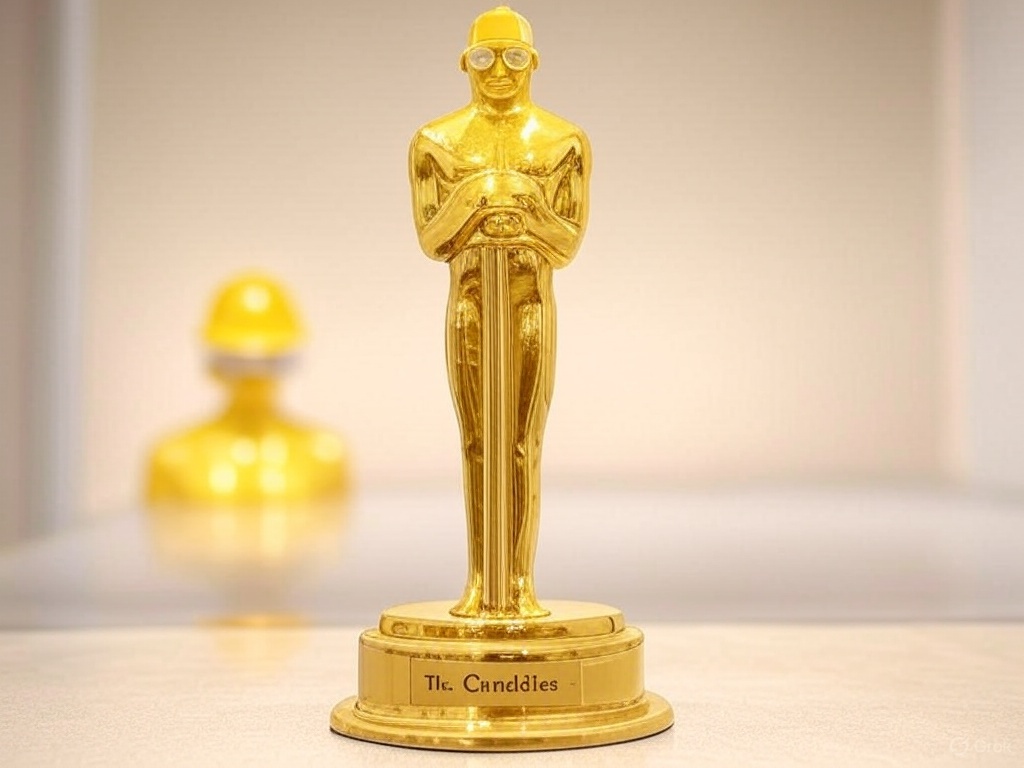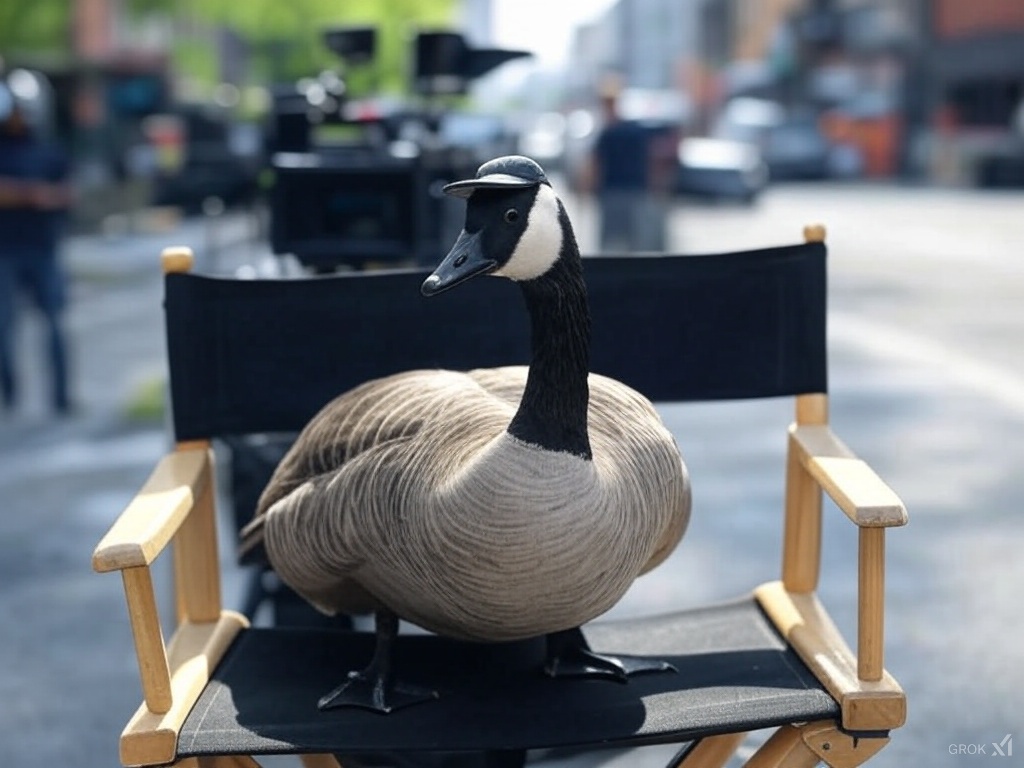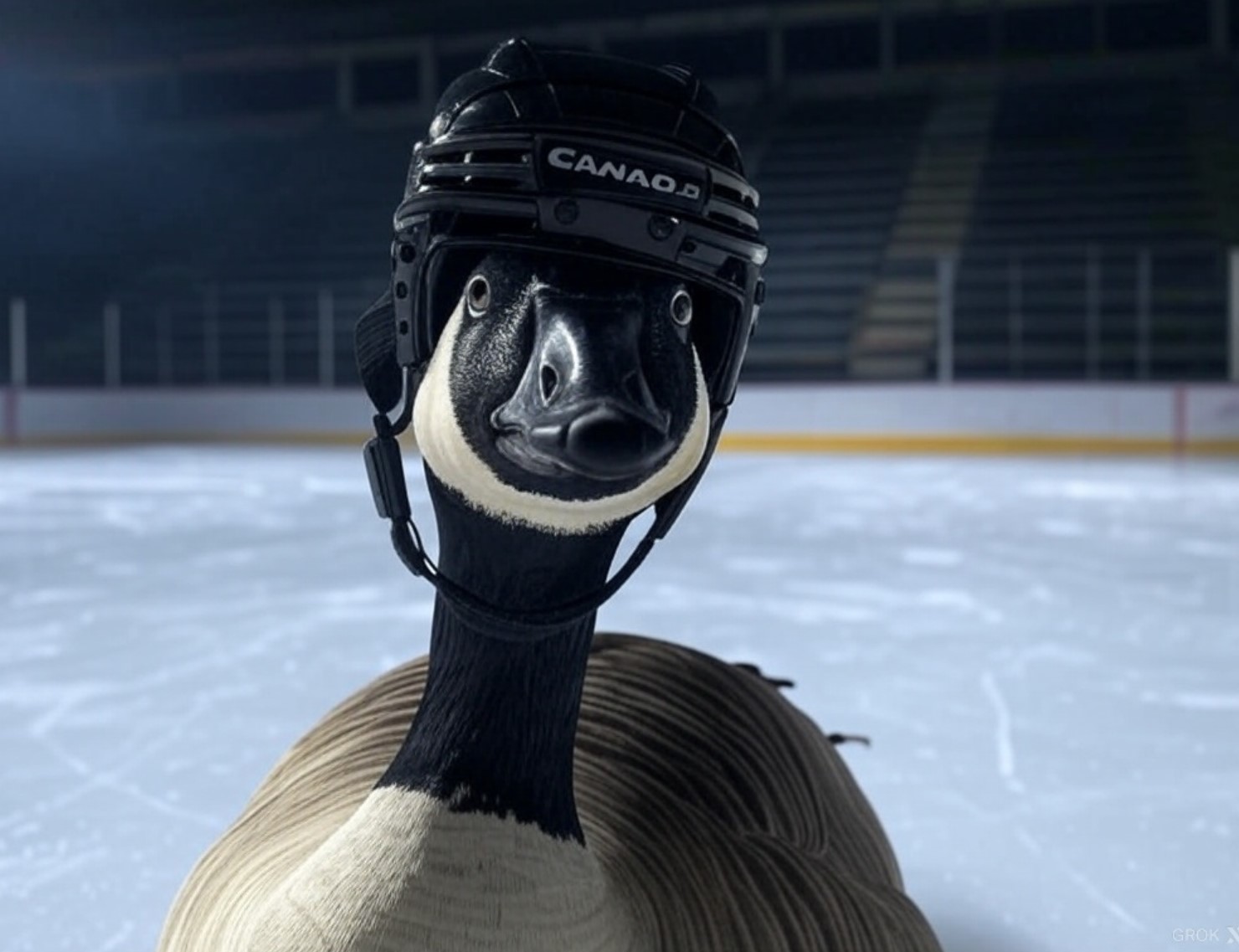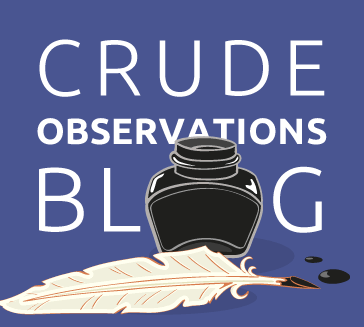I know it seems early and it is a bit, but this coming Wednesday July 1 and we all know what that means.
That’s right, it’s time for my lazy annual celebration of all things canucklehead and there’s lots to celebrate each year at this time, like the NHL playoffs being just around the corner.
Ironically. I made that joke last year. This year it’s true. Hope springs eternal, the Leafs and the Habs still have a chance to win that elusive trophy we Canadians think we should own. How elusive? It was 1993 when the Habs last won the Cup for Canada. 27 years. Almost an entire Millenial. By the time the Cup comes back to Canada, teams will be composed entirely of Gen Z players. How long? Jarome Iginla just got nominated to the NHL Hall of Fame. He got drafted, played his entire 21 year career, retired and made it to the Hall of Fame during the drought. It’s painful folks. If a pandemic year isn’t the time to do it, I don’t know what is. Besides, if the Government of Alberta has anything to say about it, all the games will be played at the Banff rec centre and an artificially frozen Lake Louise – please ignore the recently installed City of Champions signs.
Kidding aside, if sportsball is indeed coming back, I want a Canadian team to win. Is it too much to ask?
Right, back to Canada Day though. Isn’t that the day that we discovered we could appropriate the practice developed by first nations of tapping into the sweet spring sap of maple trees and making a syrup out of it, or, put another way, drink tree blood?
What? No?!?!? Egads. OK. One last try. Canada Day, the day our nation was founded, when 24 men with varying degrees of vaguely hipsterish facial hair got together in Charlottetown, Prince Edward Island to sign the contract that made this weird mishmash of a country possible. A committee. Of mostly Easterners (hey I’m one, I can make fun), deciding how the second largest country in the world could be stitched together. How very Canadian, n’est ce pas?
And, in the spirit of Canada Day and laziness engendered by what is sure to be a most exciting mid week stat holiday and a pandemic induced virtual celebratory gathering, I am reproducing in modified form my annual Ode to Canada. This will be of great utility to my many American readers who may be contemplating a COVID escape or just want to know wat makes us tick or international readers who may have just recently heard of Canada when we got rejected for that UN Security Council seat and want to know just what the heck this country is all about. It can also serve as a handy domestic reminder to all of us to take a step back, think about what makes this country unique and special and appreciate that no matter how much strum und drang we create for ourselves, we’ve really got a sweet gig going here.
But, before I go there, a few housekeeping items, because there’s always some (self) important stuff going on that needs a quick pithy comment.
Alberta Wants a Fair Deal.
This is kind of a bit of Canadiana, but it’s also a bit boring so feel free to skip the next five paragraphs.
For those of you not in the know, the “Fair Deal” document was produced by the Government of Alberta after extensive consultation and civic and it spells out in often mind-numbing detail the demands that the federal government must meet and the various steps the provincial government is going to take to ensure that the province and its citizens receive a Fair Deal within confederation.
First off, let me say for the record that I agree with some of the recommendations, disagree with others and am, quite frankly, puzzled by and have tuned out the rest. I moved here in 1998 and quickly realized that the whole “Western alienation” thing is real. It is also a powerful and addictive political stimulant. This sense of being hard done by grew from the smouldering ruins of the NEP, subsided for a bit under Stephen Harper but has since roared back to life with the collapse in oil prices in 2015, the election of a new Trudeau, pipelines and the ascension of the UCP on the backs of the one-term NDP. Ironically, the whole “Fair Deal” is never defined which I suppose is pretty convenient.
Basically the Fair Deal comes down to Albertans wanting more control of their lives and province – like Quebec – less equalization and more money staying put. Good ideas? More control of interprovincial free trade, economic corridors, pipelines and market access. Bad ideas? An expensive Alberta police force, an unneeded Alberta Pension Plan, duplicative and expensive collection of taxes.
As I said, pretty boring stuff, but good for the base and fodder for discussion. Why, I even went so far as to consult with friends and family, business colleagues, current and former clients and the guy down the street named Kevin. And from that, I have come up with an “Alternative Fair Deal” which I will reveal sometime in July.
It details in very specific form demands for all levels of government that I expect to be met so that I will be inclined to stay in this city of Calgary, province of Alberta and country of Canada.
Failure to meet these demands will most assuredly result in me declaring my property and a five foot buffer around it an Autonomous Zone inside of which we will pay no taxes, dress as we like, make fun of politicians, surf the internet, drink wine and otherwise do whatever we like. Sorta like self-isolating, but with better media coverage.
Okeleydokeley, moving on to the true north strong and free.
As Canadians, we often describe ourselves as boring, polite, followers of the rule of law and respectful of authority. Of course we weren’t always like that since we did after all BURN DOWN the White House in 1814 except of course that wasn’t us, it was the British. And it wasn’t the White House, it was the presidential residence. But really, why split hairs – WE did it and it’s pretty badass if you ask me. Pretty sure Donald Trump tried to shove this in Trudeau’s face during the New NAFTA negotiations – part of how Trudeau and Canada has treated him and the US very badly.
ANYWAY, Canada right? Pretty dull, yet nonetheless a complex and puzzling place. It shouldn’t actually work, yet strangely it does…
First, some basic history…
As a country and nation, we are not forged in the fever swamp of bloody revolution and trial by fire experienced by our much larger southern neighbour or the result of some geographic accident of tribal movements across a continent like much of the rest of the world, but Canada is nevertheless unique.
Canada as a nation is a meticulously assembled patchwork of distinct geographic areas and populations, brought together through polite and deferential negotiation. The articles of Confederation that came to being in 1867 were motivated as much through a desire to form a cohesive nation as to establish a more robust bulwark against the emerging industrial powerhouse that was the United States after the end of the US Civil War. A “thanks but no thanks” economic and political union.
The initial members of this union were of course the Maritime provinces, Upper Canada (Ontario) and Lower Canada (Quebec) soon to be followed by British Columbia and the “middle” – Alberta, Saskatchewan and Manitoba and finally Newfoundland on April Fool’s Day in 1949. Ironically, it was the promise of a massive infrastructure project to the coast (railroad) that was required to bribe BC to come on board, much as pipelines are part of what is needed to keep those pesky Albertans playing ball.
This spirit of plunder and exploitation for the benefit of the East is a Canadian rite of passage. Imagine Canada is a cow. The West feeds the cow, the centre milks the cow and the east? You tell me. This might actually help make sense of why the dairy industry is so protected.
One of the defining features of Canada is the spirit of compromise that allowed it to be formed in the first place. I can think of no other place in the world where a fiery and proud Francophone culture like Quebec coexists with the stiff upper lip blandness of the British/Anglo Saxon heritage of Ontario and the Maritimes while continually getting poked in the eye by brash upstarts from the frontier in the West. It’s a goofy marriage of convenience that should never have worked yet somehow does.
Where does it come from? It comes from the people and the origin story. It comes from a bunch of guys in a room saying hey, I bet if we tie all these things together, it’ll be funny.
And from these humble beginnings we get the remarkable thing that is Canada today.
So what is Canada today? I bet a lot of you would like to know. Heck, I’d like to know!
Well, if Canada were a person, we would say that Canada is compassionate. Canada is polite. Canada is firm. Canada is inventive. Canada is welcoming. Canada is pragmatic. Canada has a wickedly sarcastic sense of humour. A lot of Canada plays hockey. A lot of Canada doesn’t. Canada is one of the most ethnically diverse countries in the world and is proud of it. Canada has snow. And yes, Canada has some nasty baggage it is dealing with.
Chief among this baggage, let’s be realistic almost exclusively, is Canada’s legacy of colonialism and mistreatment of its indigenous populations. This history that we share in many ways with our southern neighbours is one which we are incrementally but painfully trying to deal with as a nation. It isn’t easy and a large part of our future will be defined by how we deal with these ongoing issues, but in this, as in many things Canadian, I have confidence in resolution. Why? Because it’s what we do. Want proof? Well even as I write, there is a massive rewriting of the relationship between First Nations and the rest of Canada as First Nations come to the realization of the massive economic power they actually wield. This is especially true in resource rich Western Canada, And with this realization is coming ownership, investment, employment and, over the long term, sovereign wealth and self-sufficiency. And all of this is being encouraged, supported and in some cases funded by the private sector and provincial and federal governments. Think eventual First Nations ownership of TransMountain and the economic participation in Coastal Gas Link are great initiatives? Take a look around – that’s just the tip of the iceberg. First Nations are investors in oil and gas, mining, services businesses, real estate and hospitality. Alberta even has an investment bank/fund dedicated to supporting First Nations projects. Sure there are roadblocks along the way, there always will be. But there will always be a way around and/or through.
This aside (or even included for what country is without original sin), we have much to be proud of and (aside from the mostly lousy weather, who’s kidding who) Canada remains one of the best countries in the world in which to live and a land of innumerable and occasionally remarkable accomplishments, invention and natural bounty.
So, as is common in most of these pro-Canada celebratory missives, in no particular order some of Canada’s most significant contributions to the world at large and defining characteristics include:
Canadian inventions/creations of significance include the zipper. Not only that how about peanut butter, insulin, the telephone, basketball (sorry USA), the pacemaker, bagged milk, POUTINE, the paint roller, the Wonderbra, the retractable beer carton handle, plexiglass, IMAX, standard time, snowmobiling, ham and pineapple pizza (hawaian), the lightbulb, the Bloody Caesar (try it), the caulking gun, lacrosse, Yahtzee, Trivial Pursuit and SUPERMAN!!!!!
Geographically and resource-wise, Canada is the second largest country in the world, has the 3rd largest reserves of oil and the 10th largest reserves of natural gas. At 348 million hectares, we have 9% of the world’s forest land or an area 4 times the size of Texas. Canada is the world’s second largest producer of uranium and has the largest reserves. Canada is the world’s largest producer and exporter of potash. Canada is the 5th largest producer of gold, in the top 5 in diamond production and in the top 10 for virtually any other metal you can think of or find in a high school text book.
On the food and agriculture front, Canada is the 5th largest agricultural exporter in the world, and the agriculture and agri-food industry employs 2.2 million Canadians. We produce about 80% of the world’s maple syrup, we are the world’s largest exporter and among the largest producers of flaxseed, canola, pulses and durum wheat. We are the world’s largest producer of Poutine, which is grown in micro-farms in the Eastern Townships of Quebec
On the cultural side, yes we did produce Celine Dion, Nickelback, Justin Bieber, Samantha Bee, Drake and Jim Carrey and we have collectively apologized for that ages ago. However, we are also responsible for such cultural icons as Neil Young, Michael J. Fox, Ryan Reynolds, Leonard Cohen (RIP), Ryan Gosling, Rachel McAdam, Kiefer Sutherland, Mike Myers and Seth Rogen among others, not to mention media heavyweights like Morley Safer, David Frum and Peter Jennings. And who could forget the crown prince of Canadians hogging the spotlight south of the border – that’s right, James T. Kirk or as we know him, William “f-ing” Shatner or, sadly, the Shat.
And, of course, there’s hockey. ‘nuff said.
But we’re not just food, natural resources, entertainers, stick swingers and creators of both remarkably and questionably useful inventions. Canada is much more than that.
We are a country with world-leading innovation across virtually all industries – from finance to biotech to engineering. We are a society and a nation built on immigration. We don’t actually care where you are from, we are more interested in what you bring.
We are inclusive and welcoming. We are governed by a fundamental belief in human rights, social justice and progressive ideals. Equality of all people and equal access to rights and liberties is fundamental to who we are. And we will fight for it.
One thing Canada isn’t? We aren’t a pushover. We don’t like to be pushed around and no matter our internal differences, we can set them aside if we feel slighted. And if it’s about hockey it’s even worse. We don’t like our character questioned and if anyone is going to insult our political leaders, it’s going to be us dammit! I suppose that’s pretty much the story for most countries, but a bit less expected from prim and proper Canadians.
Along that vein, we are a peace-loving nation, but Canada has nonetheless participated in most of the major conflicts of modern history because it was the right thing to do and our armed forces are recognized for their valour and skill. We don’t brag about it, we kinda just do it. But we appreciate the pat on the back we occasionally get.
Some people will say we are defined by our approach to health care. And notwithstanding that universal health care isn’t unique to Canada, it is hard to argue with that. While often maligned and mocked here and abroad for some of its widely known inefficiencies, our Canadian health care system is a fundamental projection of the Canadian progressive spirit, a fully funded single payer system that recognizes that universal access to affordable health care is a right. Can it be better? Sure. Can it be worse? I don’t know, is there a readily available example of a broken private health care system with runaway costs handy? The point is, as a country we decided that we would take care of each other’s health. And it works. Nowhere has the utility of our health care system been brought home more starkly than in Canada’s largely coordinated response to the COVID-19 pandemic.
As Canadians, I believe we are among the luckiest people in the world because we get to live in the best country in the world.
We elect governments that sit on either side of the ideological divide, but never so far in either direction as to really screw it up. Each party has its bozos, morons and stars and somehow we make it through. Our checks and balances work and no one is in a hurry to grab hold of all of it and be the ultimate boss – the job just doesn’t pay that well.
We are important enough in the world to be part of the G7 and unimportant enough to lose out on a rotating UN Security Council seat. We debate whether parody twitter accounts pose a national threat. Honestly, some of the stuff we argue about is patently ridiculous. We may not throw people out of restaurants for being on one side of the aisle or the other, but buy a $14 orange juice and watch the career suicide clock tick down to zero. How awesome is that? It’s downright liberating!
We are a society that can have its Prime Minister walk down the street participating in a Pride Parade or attending a Championship celebration (We the North! Take that NBA) attended by 1.5 million people WITH HIS KIDS and have no visible security presence. Like the leaders or not, this type of openness and safety and normalness towards our political leaders feels unique relative to pretty much anywhere in the world.
Looking to the future, it is hard not to believe that Canada has some of the greatest opportunities for economic and social advancement of any country in the world.
Trade and political wars with China? Random US tariffs? Pipeline delays? These too shall pass. We know what we have and we know what people want. It’ll all work out. One party may pass a law that goes to the extreme in one direction, another may choose to reverse that direction. At the end of the day, it’ll be tested, the bad parts will be fixed or swept under the rug and we’ll move on. It’s the way we do things.
Where am I going with this? Not some “post-national” absurd navel gazing, instead some very practical and very Canadian “this is the way things are” pragmatism. It’s hard to miss the Canadian opportunity.
We have oil and stuff. We are sophisticated with technology and capital. Our country generally rocks. We’ve been there before, we’ll be there again. Give it your worst. It’ll work out fine eh. Bob’s your uncle.
Happy Canada Day, eh?
Office Cat
I think it’s safe to say this is officially done. He is gone. Chasing spiders in the basement mostly.
Stormont Capital Crude Coffee
Another great conversation.
The main topic was Calgary. And it’s place in the new economy.
Then we talked politics for a bit, because why not?
This week I promise to track down another interesting guest who isn’t me, although I reserve the right to blather away about stuff I want to talk about. Email me if you want to participate at sparnell@stormontcapital.com
Prices as at June 26, 2020
- Oil
- Oil storage was… up. (kind of expected – does no one read the news?)
- Production was … up?
- OPEC+++++ agreed to maintain cuts
- Natural Gas
- Storage was up, historically very high; consumption down; production flat; exports flat.
- WTI Crude: $38.06 ($39.42)
- Western Canada Select: $28.56 ($30.57)
- AECO Spot: $1.848 ($1.850)
- NYMEX Gas: $1.556 ($1.747)
- US/Canadian Dollar: $0.7328 ($0.7353)
Highlights
- As at June 19, 2020, US crude oil supplies were at 540.7 million barrels, an increase of 1.4 million barrels from the previous week and a increase of 71.1 million barrels from last year.
- The number of days oil supply in storage is 38.9 compared to 27.4 last year at this time.
- Production was up 500k for the week at 11.000 million barrels per day. Production last year at the same time was 12.100 million barrels per day.
- Imports fell to 6.540 million barrels from 6.642 million barrels per day compared to 6.656 million barrels per day last year.
- Crude exports from the US rose to 3.157 million barrels per day from 2.462 million barrels per day last week compared to 3.770 million barrels per day a year ago
- Canadian exports to the US rose to 3.229 million barrels a day from 3.085 million barrels per day last week
- Refinery inputs increased during the current week to 13.840 million barrels per day
- As at June 19, 2020, US natural gas in storage was 3,012 billion cubic feet (Bcf), which is 18% above the 5-year average and about 33% higher than last year’s level, following an implied net injection of 120 Bcf during the report week
- Overall U.S. natural gas consumption rose 9.8% during the report week.
- Production was down 0.3% for the week. Imports from Canada rose 13.0% from the week before. Exports to Mexico were up 6.4%
- LNG exports totaled 25 Bcf
- As of June 26, 2020, the Canadian rig count decreased 4 to 13 (AB – 11; BC – 6; SK – 2; MB – 0; Other – 2). Rig count for the same period last year was 58.
- US Onshore Oil rig count at June 26, 2020 is at 188, down 1 from the week prior.
- Peak rig count was October 10, 2014 at 1,609
- Natural gas rigs drilling in the United States is flat at 75
- Peak rig count before the downturn was November 11, 2014 at 356 (note the actual peak gas rig count was 1,606 on August 29, 2008)
- Offshore rig count was flat at 11.
- Offshore peak rig count at January 1, 2015 was 55
US split of Oil vs Gas rigs is 70%/30%, in Canada the split is 66%/34%
Trump Watch: Rallies!
Kenney Watch (new!): Evil environmentalists!
Trudeau Watch (for balance): Summer vacation?

